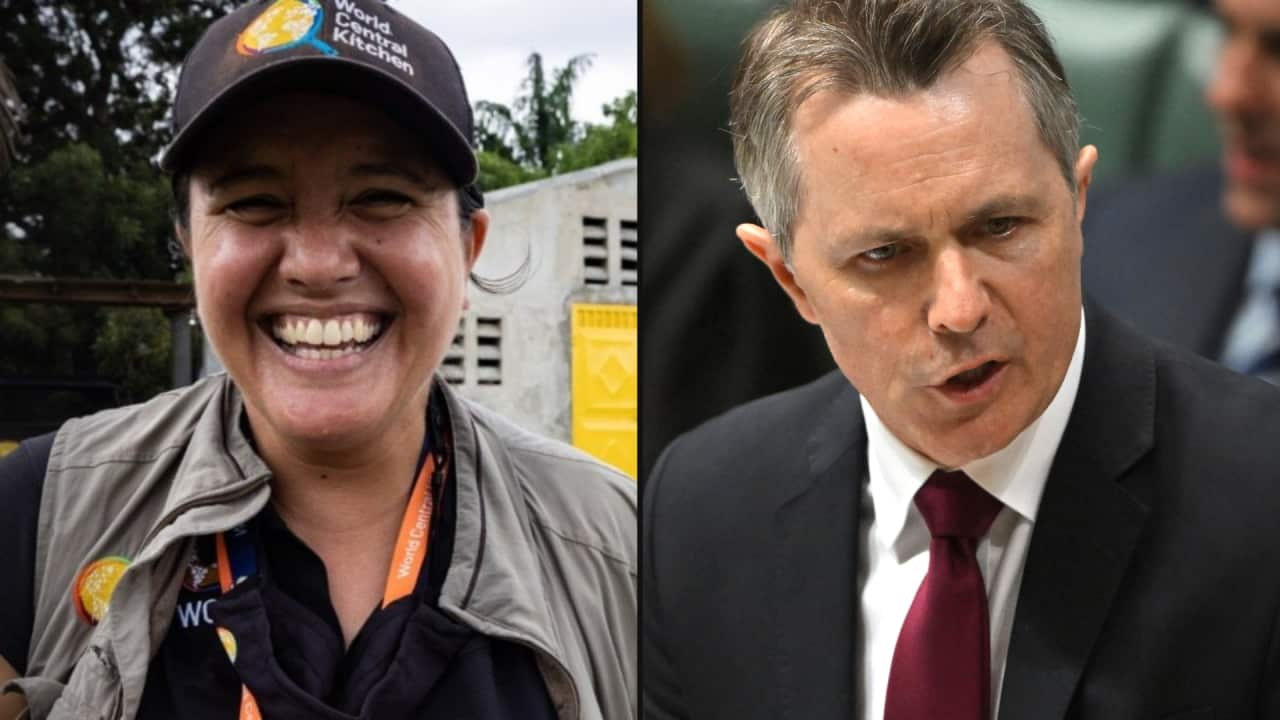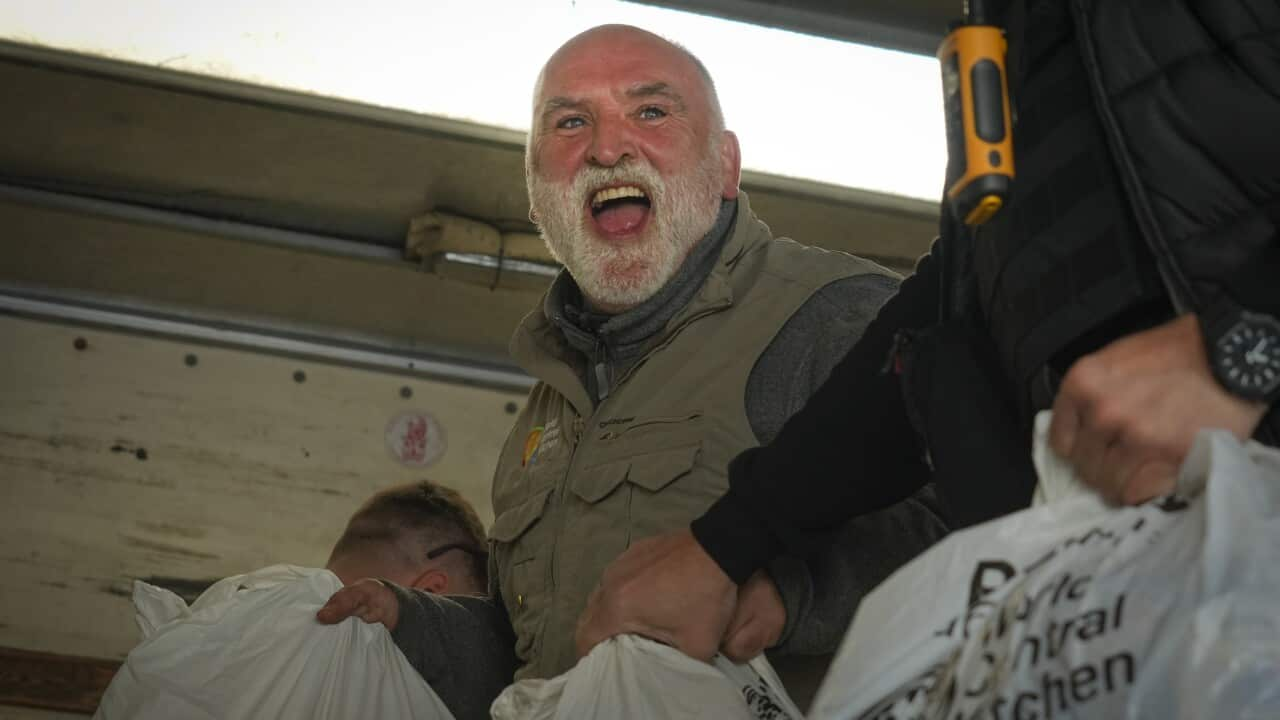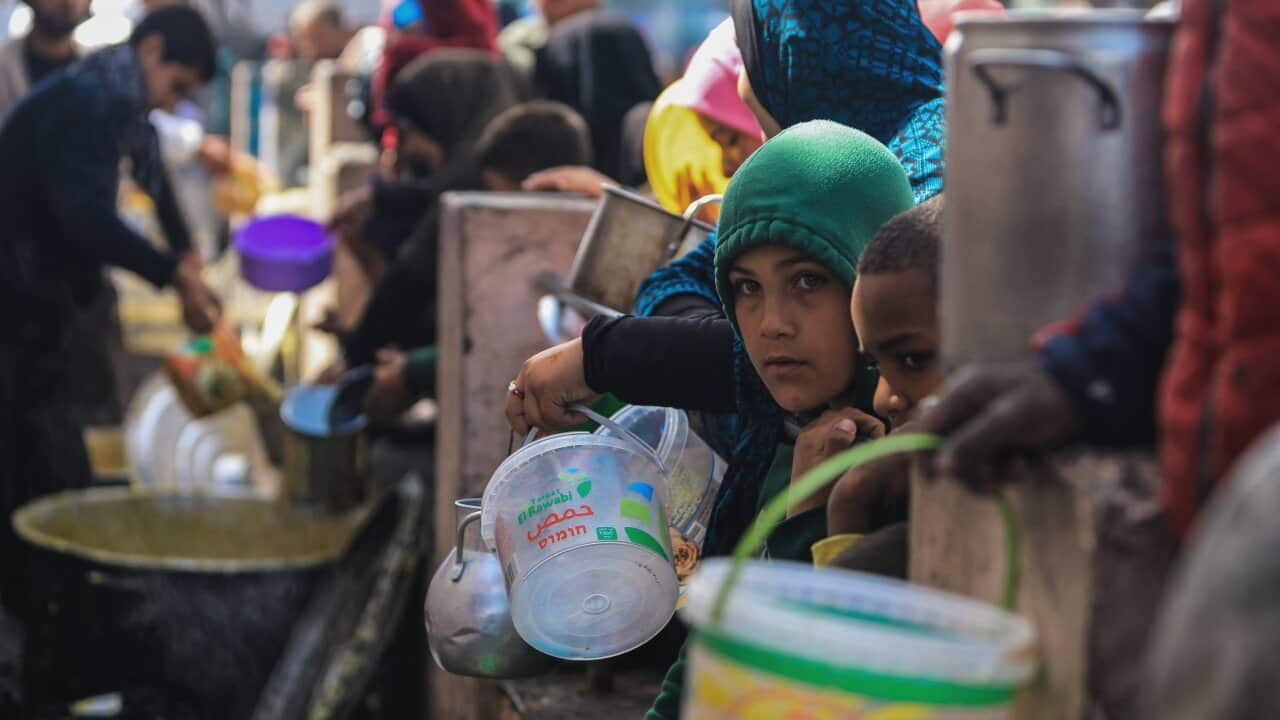Key Points
- Israeli says it will open a temporary aid corridor in northern Gaza.
- International pressure has been piled on Israel after it killed seven aid workers in an airstrike.
- At least 196 humanitarian workers have been killed in Gaza since October, according to the United Nations.
Israel will allow "temporary" aid deliveries via its border with the northern Gaza Strip, Prime Minister Benjamin Netanyahu's office announced Friday, hours after a warning from US President Joe Biden.
"Israel will allow the temporary delivery of humanitarian aid through Ashdod and the Erez checkpoint," the statement from the prime minister's office said, referring to a port about 40 kilometres (25 miles) north of Gaza and a land crossing.
"This increased aid will prevent a humanitarian crisis and is necessary to ensure the continuation of the fighting and to achieve the goals of the war," it added.
The announcement comes as international pressure mounts on Israel after it took responsibility for a strike that killed seven employees of US-based charity World Central Kitchen (WCK) including Australian Zomi Frankcom.
In a tense, 30-minute call with Netanyahu on Thursday, Biden described the Israeli strike as "unacceptable" and called for an "immediate ceasefire".
He also "made clear that US policy" will be determined by Israel taking "specific, concrete, and measurable steps to address civilian harm, humanitarian suffering, and the safety of aid workers", according to a White House statement.
Directly after Israel's announcement, the White House welcomed the moves to "increase aid flow to Gaza", and called for them to be "fully and rapidly implemented".
At least 196 humanitarian workers have been killed in Gaza since October, according to the United Nations.

The death of Australian aid worker Zomi Frankcom in Gaza has prompted calls for accountability. Source: Supplied / PR IMAGE
Charity founder chef José Andrés said the convoy was "systematically" targeted even though Israel's military was aware of his staff's movements.
Asked to respond, Israeli government spokeswoman Raquela Karamson said during a media briefing: "This was unintended."
"Clearly something went wrong here, and as we learn more and the investigation reveals exactly what happened, and the cause of what happened, we will certainly adjust our practices in the future to make sure this does not happen again."
She said publication of the investigation's findings could take weeks.
But the chief Israeli military spokesperson, Rear Admiral Daniel Hagari, appeared to give a much shorter timeline.
An investigators' report was given to Prime Minister Benjamin Netanyahu and Defence Minister Yoav Gallant on Thursday, Hagari said in a televised statement.
"And I believe that, after we present this to the ambassadors from the respective countries, and to the members of the WCK organisation, we will make it public in a clear, transparent manner — and that will happen soon," he said.
As a preliminary move to make amends for the WCK deaths, Israel said it would set up a joint operational coordination room with humanitarian agencies, located within the military's Southern Command — where Gaza missions are directly managed.
An Israeli security official who spoke on condition of anonymity said ground forces in Gaza were down to about a quarter of their numbers at the height of the invasion, and focused on more pinpoint missions and securing conquered areas.
"This may have contributed to a feeling of 'sitting duck' vulnerability. Troops prefer to be on the offensive, rather than static and potentially open to attack or to seeing the enemy operate with relative freedom," the official said.
"The investigation will have to determine, among other things, whether this kind of thinking affected the judgement of whoever decided that the convoy should be struck."
The Palestinian militant group Hamas attacked Israel on 7 October, killing 1,200 people and seizing 253 hostages, according to Israeli tallies.
Israel retaliated by imposing a total siege on Gaza, then launching an air and ground assault that has killed more than 33,000 Palestinians, say health authorities in Gaza.













